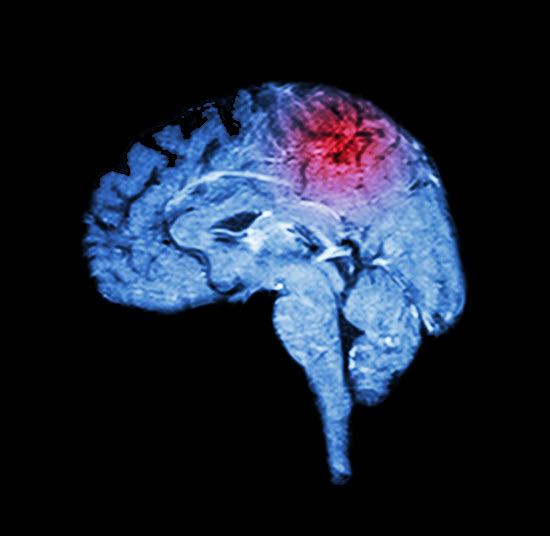
Cannabis oil for stroke patients
Stroke is one of the leading causes of death worldwide.
There are three types of stroke: ischemic, hemorrhagic, and transient ischemic. Ischemic strokes are the most common. Stroke survivors are also at risk of long-term disability, although the prognosis and outlook are highly dependent on several factors.
Some of the factors that affect stroke survivors’ outlook are the patient’s age, the type of stroke, the treatment, and general health. Most stroke survivors require hospitalization for adequate rehabilitation and to improve prognosis, and it is also common for many to require occupational, speech, or physical therapy for some time. Cannabinoids can also help reduce inflammation in the body to improve healing.
Now studies are showing that cannabis may be beneficial for stroke survivors. Patients may benefit from the anti-anxiety properties of cannabinoids as well as their ability to fight depression. Finally, stroke survivors are vulnerable to mental disorders, particularly depression, given the disabilities many of them live with.
However, many question the safety of cannabis products among stroke survivors.
But a recent study from Italy showed that daily use of Sativex (Nabiximols), a proprietary spray containing THC and CBD, does not lead to cardiovascular problems in stroke survivors. Italian researchers analyzed the safety of Sativex in 34 stroke survivors suffering from spasticity.
“During treatment with nabiximols, no cardiovascular treatment-related adverse effects occurred, namely no significant fluctuations in blood pressure and heart rate, nor did ischemic or hemorrhagic events occur. During nabiximol treatment, self-assessed blood pressure and heart rate did not change from baseline,” the researchers wrote. “No patient showed a significant acceleration or decrease in heart rate or a change in rhythm, and none required additional ECG or cardiac evaluation during the study.”
“These data support the cardiovascular safety of nabiximols,” they concluded.
Meanwhile, another 2022 study found that cannabidiol (CBD) is beneficial as a post-stroke treatment. “Pretreatment with CBD could alleviate oxidative stress in the cortex (as the center of ischemic damage) and neuronal death in the cortex and striatum (as the penumbra), which may be a major achievement,” the study states.
How CBD Can Help Stroke Survivors
There are many ways that CBD can be used by stroke survivors to improve their prognosis and quality of life. It helps stroke patients in a variety of ways, as detailed below. Most importantly, since the ECS:
Antioxidant properties: Cannabidiol has known antioxidant benefits that prove useful in helping the body get rid of toxic cells while reducing cell oxidation. In fact, laboratory studies dating back to 1998 show that CBD contains higher levels of antioxidants than vitamins C and E. This makes CBD an excellent supplement for improving the overall cardiovascular health of stroke survivors.
Because oxidative damage is a hallmark feature of stroke victims, supplementing with CBD may help reduce the damage caused. The human body relies on antioxidants to stabilize the levels of free radicals in the body, preventing them from causing further damage.
Anti-Inflammatory Benefits: Several studies point to the anti-inflammatory properties of CBD. When the body has too many inflammatory cells, especially macrophages and monocytes, it can cause ruptures in the cardiovascular plaques and contribute to the formation of thrombi. All of this significantly increases the risk of stroke. In addition, in a person who has suffered a stroke, inflammation remains in the area where blood clots form. Studies show that CBD is a powerful anti-inflammatory and also helps reduce oxidative stress.
lower high blood pressure: Anyone suffering from chronic high blood pressure has an increased risk of stroke. For this reason, doctors always treat blood pressure to avoid the risk of stroke. In addition, stroke survivors with high blood pressure may have another stroke if left untreated.
Studies show that as little as 600 mg of CBD can help lower resting blood pressure. Another study shows that CBD can help lower blood pressure due to its vasodilator properties and ability to dilate blood vessels.
protect brain cells: During a stroke, neurons are damaged. Without proper treatment, neurons can suffer from starvation of nutrition and oxygen, which can lead to damage and eventual death of neurons. When this occurs, there is long-term damage to the nervous system. CBD has been shown to be useful in supporting neuron health, particularly in its ability to support the handling of calcium ions, which nerves need to send electrical impulses, as well as the metabolism of neurons.
Improve blood circulation in the brain: Poor blood flow to the brain causes ischemic strokes. Because of this, ischemic stroke patients must work to improve blood flow to the brain to prevent further damage or the risk of another stroke. CBD can help with this mainly because of its terpene content. Several terpenes have been shown to improve cerebral circulation, most notably borneol, eucalyptol, and caryophyllene oxide.
CBD itself can help improve cerebral blood flow as it helps modulate serotonin receptors that help regulate the blood going to the brain.
Conclusion
If you or a loved one have suffered a stroke and want to explore the benefits of CBD for recovery, be sure to speak with your doctor. There are many ways you can treat CBD, but consuming CBD in its highest quality and purest form is important to reduce the risk of contamination. For example, CBD isolate and hemp oil contain the highest amount of antioxidants.
Speak to your doctor to find out how best to incorporate CBD into traditional therapies, which is often the best way to recover from stroke. CBD is not a panacea, although it can work best with other means.
MARIJUANA AND STOPS, READ MORE…

CAN REGULAR CANNABIS USE HELP PREVENT SLEEPING?

Post a comment: